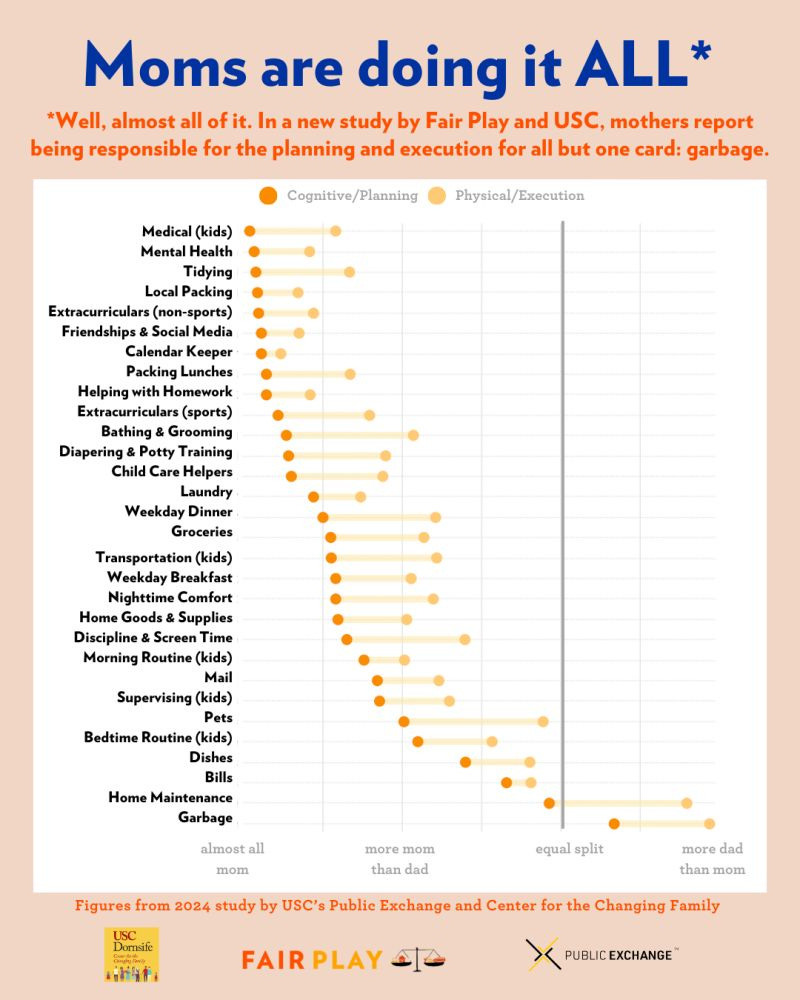Read-Connect-Reflect #32
Read
Research: Why passionate men succeed, even when they’re mediocre (HBR)
Passion is often celebrated as a hallmark of leadership potential, yet our understanding and evaluation of it remain deeply flawed. Research shows that subjective interpretations of passion can perpetuate gender bias, disproportionately favoring men while penalizing women. In this article, the authors state:
“Our research reveals that while passion is a key qualification for many high-potential programs, it’s not an objective criterion. Gendered interpretations of passion bias the selection process by elevating unexceptional men who are seen as more passionate about their work into fast-track career paths while disadvantaging equally passionate women [whose passion is often misinterpreted as ‘emotional’ or even ‘inappropriate’]. High-potential programs were designed to create equitable pathways to leadership, yet they risk perpetuating inequality if organizations do not take steps to address these biases.”
The authors suggest that organizations should combat this by adopting objective criteria, engaging in direct conversations, and regularly auditing selection processes to ensure fairness.
The Fair Play method: Can we solve for the unequal division of domestic labor? (USC/Public Exchange)
This article is an evaluation of the Fair Play method (a card-based intervention for more equitably distributing household division of labor), but what I found interesting was this graph:
It shows that mothers are overwhelmingly responsible for both the cognitive (planning) and physical (execution) aspects of household tasks across almost all categories. Tasks like managing kids' medical needs, mental health, tidying, and coordinating extracurriculars lean heavily toward mothers. Fathers contribute more equitably or take a larger share for only two tasks—home maintenance and garbage disposal. Though the research for their branded program isn’t overly convincing, I find that the book it’s based on, Fair Play, is very useful for sparking a conversation about fairness and change.
Postpartum depression is costing the United States billions. Can cities help? (19th News)
This article highlights innovative programs in Philadelphia and Flint, MI that aim to mitigate the financial challenges of new parenthood by offering unconditional cash transfers to mothers during pregnancy and postpartum, addressing financial stress and improving maternal and child health outcomes. These programs are showing promising results—including reduced depressive symptoms, increased housing stability, and better birth outcomes. Funded through public-private partnerships, they represent a shift toward addressing maternal health as a public issue rather than an individual burden (which is HUGE!!!). Advocates argue for expanding such programs, emphasizing their potential to reduce the long-term societal and financial costs of postpartum mood disorders while fostering healthier communities.
Inside a sleek hotel, new moms find postpartum pampering and sleep (Washington Post gift link)
On the other end of the income spectrum (and highlighting the issue of income disparity in our country) is this article, which features the first postnatal retreat facilities available in the US. These retreats, inspired by models in countries like South Korea, provide amenities such as round-the-clock nursery care, postpartum therapies, and parenting classes. However, they are costly, with rates as high as $1,500 per night, making them accessible to only a few. It’s hard to believe that a service like this would ever be covered by insurance companies in the US, but one can dream…
Raising empowered girls in a misogynistic world (Is My Kid the Asshole?)
There’s no doubt that this is a fraught political moment, and raising girls to feel empowered and confident can feel daunting. Which is why I *so* appreciated this interview with clinical psychologist Jo-Ann Finkelstein, author of Sexism & Sensibility: Raising Empowered, Resilient Girls in the Modern World. This article covers everything from talking about setbacks, challenging beauty standards, and navigating clothing choices.
Connect
I loved an idea that friend of the newsletter, Lauren McGoodwin, shared on her LinkedIn—asynchronous weekly team updates. If you want to save time by eliminating a meeting full of status updates but don’t want to completely sacrifice interpersonal dynamics, consider recording a 3-5 minute video update outlining your top priorities for the week and making any challenges you need help with. Your team will get the information they need without getting pulled into an inefficient meeting—win/win.
Reflect
When I was a kid, my dad used to make my sister and me write out new years resolutions every year. We hated this tradition at the time, but I’ve come to appreciate the new year as a time of reflection. Instead of focusing on intense and ambitious “goal setting”, I now think about what I need to feel more balanced. With that in mind, I encourage you to think about the following:
What will be different this time next year?
How does this change align with my values? (Hint: aligning change with your values will make it feel more authentic and therefore more likely to stick)
How will I know I’ve been successful at implementing this change? Are there certain measurables or markers?
Who can help keep you accountable for this desired change?
See you in 2025 ✌️






